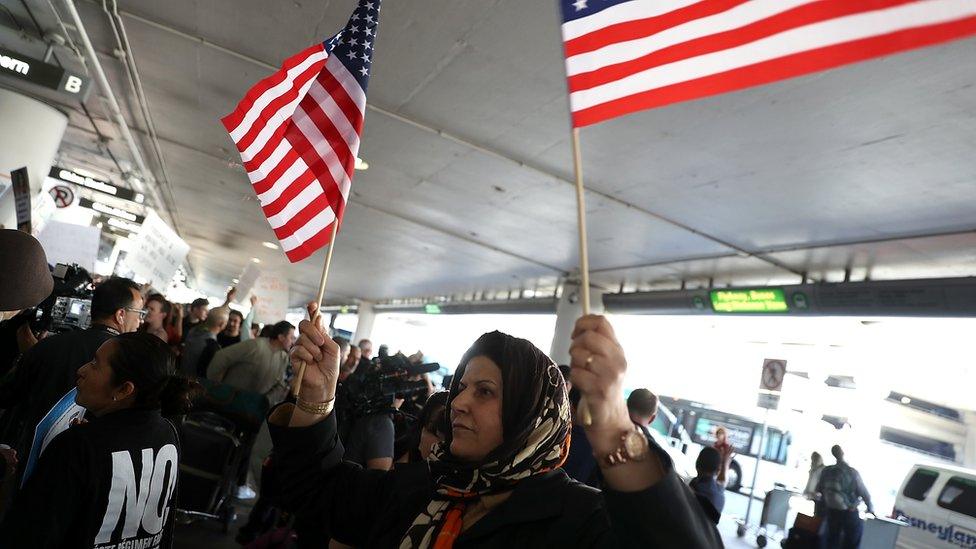Trump travel ban: Hawaii files first legal challenge
- Published

The original ban sparked protests and chaos at airports
Hawaii has become the first US state to file a suit against President Donald Trump's revised travel order.
Its attorney general says the new version is fundamentally the same as the first, calling it "Muslim Ban 2.0".
The directive, which takes effect on 16 March, places a 90-day ban on people from six mainly Muslim nations and a 120-day ban on all refugees.
The previous order, which was blocked by a federal court, sparked confusion at airports and mass protests.
"Nothing of substance has changed: There is the same blanket ban on entry from Muslim-majority countries (minus one)," Hawaii Attorney General Doug Chin said of the new order.
It will bar entry of citizens of Iran, Libya, Syria, Somalia, Sudan and Yemen for 90 days. Iraq, which was included in the first ban, has been taken off the list.
Read more on this story
Mr Chin also said the directive included "the same sweeping shutdown of refugee admissions (absent one exception) and lawless warren of exceptions and waivers", despite the changes made.
The lifts an indefinite ban on those from Syria. It will also no longer affect legal US permanent residents, and drops controversial language about giving priority to religious minorities.
New US travel ban: What's different?
These amendments were introduced in response to legal complaints, which saw the first order blocked by US federal courts.
Judges ruled that the ban was unconstitutional amid concerns it unfairly targeted Muslims, something the government denied.
Hawaii was among a number of states who filed lawsuits against the original ban saying it would harm residents, businesses and schools.
It filed late on Wednesday, calling for an emergency block on the new order. A hearing is set for March 15, a day before the new ban is to go into effect.
President Trump has not yet commented on Hawaii's latest legal bid, but has previously insisted he has the right to enact such an executive order and hit out at "so political" courts.
WW2 echoes
Speaking to , Mr Chin said the new ban had the same "nation-of-origin discrimination problems" as the first.
He said this was a particularly sensitive issue in Hawaii because of memories of Japanese internment camps on the Pacific island during World War Two.
Although the new directive sought to answer legal complaints, Mr Chin said it still constituted a "Muslim ban" because of the countries involved and statements from administration officials.
In justifying the ban on Monday, Attorney General Jeff Sessions said there are more than 300 refugees under investigation for potential terror offences. But no further details were given.
The US appeals court previously criticised the government for failing to provide "evidence that any alien from any of the countries named in the order" had committed a terrorist attack in the US.